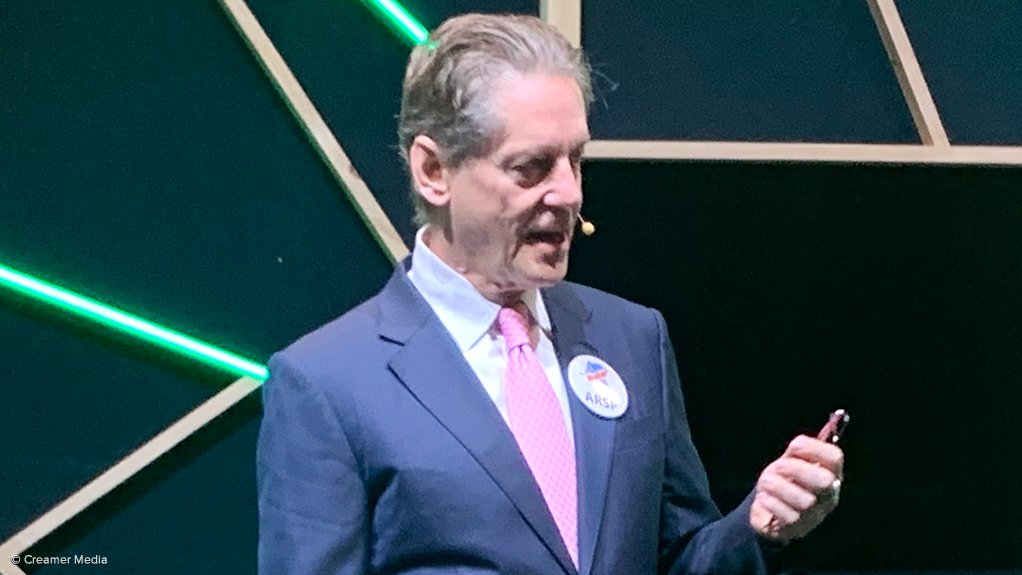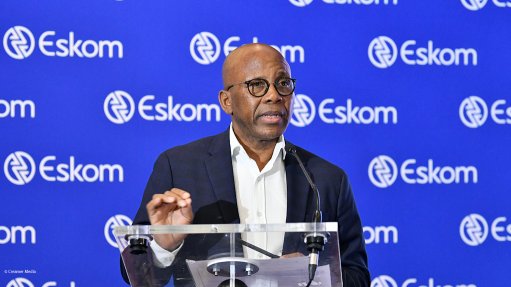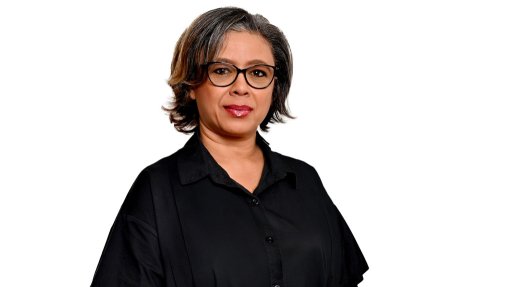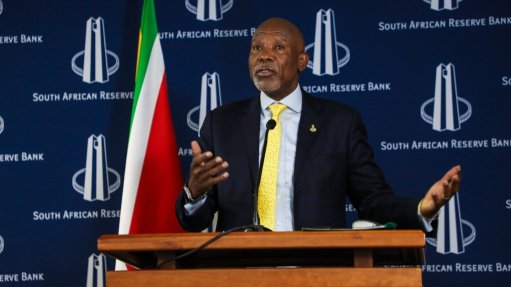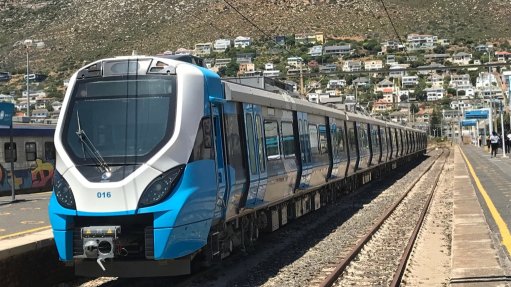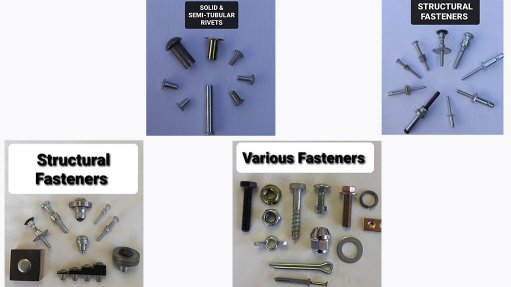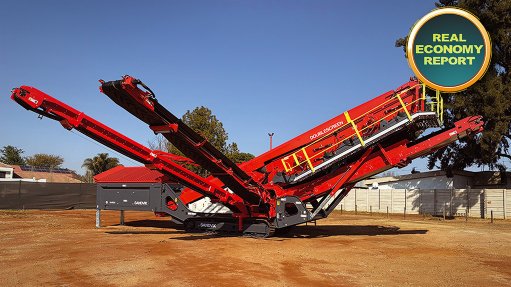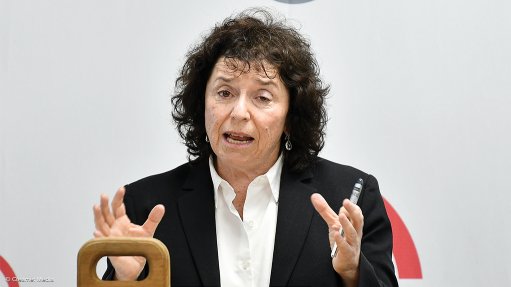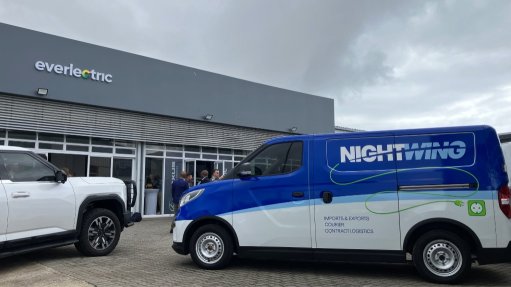Crucial to combine agricultural development with mining, Indaba hears
CAPE TOWN (miningweekly.com) – Africa is going to have a huge amount to do to help solve the world’s climate change problems, Toronto-listed Ivanhoe Mines executive chairperson Robert Friedland emphasised in his far-reaching thirtieth address to the thirtieth Investing in African Mining Indaba in Cape Town.
In those 30 consecutive Indaba presentations, Friedland has regularly highlighted the global need to combat climate change along with the critical role that young Africans will play in saving the planet, even though Africa has done the least to damage it.
Last year, humanity experienced the highest temperatures ever recorded.
“This is no joke, and it’s not going away,” Friedland told the full-house audience at the event covered by Mining Weekly.
In current circumstances, the world’s greatest commodity is, no, not copper, but water, “the most valuable commodity on our planet”, with only 2.5% of it fresh and humanity facing a looming water crisis.
Ivanhoe Mines is advancing mine development at the Platreef platinum/palladium/gold/nickel/copper discovery on the northern limb of South Africa’s Bushveld Complex, mine development and exploration at the Kamoa-Kakula copper discovery in the Democratic Republic of Congo (DRC), and upgrading at the historic Kipushi zinc/copper/silver/germanium mine, also on the DRC’s Copperbelt.
“As we survey the dry areas in South Africa, which is water stressed, we can find a lot more water and the mining industry will be involved in agricultural development.
“It is, in fact, crucial in what we are trying to do, to combine agricultural development with mining. Part of mining with a greater purpose is to develop agriculture around our mines,” Friedland said.
Each 1 oC increase in temperature causes about a 2% reduction in agricultural output.
While the US, through the Inflation Reduction Act, was earmarking some $3-trillion of expenditure to try to do something about climate change, two automotive companies, Stellantis and Toyota, were blasting the administration’s plan for electric cars on the grounds that the very act of mining the raw materials needed to build the electric cars, was going to destroy the environment.
“Renewables technology is absurdly metals intensive. A typical electric car uses about six times the minerals of a conventional car. An offshore wind farm uses nine times more minerals than a gas car. This is a huge dilemma,” said Friedland.
“There’s a reason why underwater power cables are so expensive,” he said, displaying a huge set of copper-based undersea power cables.
“We’re talking about just the copper wire for offshore wind being $267-billion in 2030. Now let’s talk about the grid. This is a crazy statistic.
“We need $21-trillion of investment in the grid, building 80-million kilometres of grid to allow us to replace the global electrical grid.
“If everybody would go and plug in a Tesla this afternoon, the grid could not deliver. The entire grid needs to be replaced. What are the grids made of? They’re made out of metal.
“We have mined as a species, 700-million metric tonnes of copper. We are scheduled to require another 700-million metric tonnes in the next 22 years.
“Where the hell is this metal supposed to come from and how are we going to mine it?
“The United States actually has a government agency that doesn’t even have copper listed as a critical raw material. We’re going to need a telescope to see the amount of copper we require in the rest of my natural lifespan.
“We’ve lost about a million metric tonnes of copper supply just this year with the problems with the environmental aspects of a mine in Panama and other surprises.
“The current copper price simply isn’t high enough to do an environmentally class job of building giant copper mines in Latin America. Where’s the water going to come from?
“And we have the stupid system where all the copper is priced the same. How can we have the same price for copper when some copper is dirty copper and other copper is clean copper,” he queried, pointing to copper being produced in the DRC with the use of hydropower and Africa being the prime copper location.
An estimated $2.7-trillion needs to be invested a year to get to net zero by 2050 and to avoid temperatures rising above 1.5 oC.
Thirty per cent of the world’s metals, in current day circumstances of conflicts and wars, lie in Africa - a continent that has a critical role to play for humanity, Friedland reiterated.
Comments
Press Office
Announcements
What's On
Subscribe to improve your user experience...
Option 1 (equivalent of R125 a month):
Receive a weekly copy of Creamer Media's Engineering News & Mining Weekly magazine
(print copy for those in South Africa and e-magazine for those outside of South Africa)
Receive daily email newsletters
Access to full search results
Access archive of magazine back copies
Access to Projects in Progress
Access to ONE Research Report of your choice in PDF format
Option 2 (equivalent of R375 a month):
All benefits from Option 1
PLUS
Access to Creamer Media's Research Channel Africa for ALL Research Reports, in PDF format, on various industrial and mining sectors
including Electricity; Water; Energy Transition; Hydrogen; Roads, Rail and Ports; Coal; Gold; Platinum; Battery Metals; etc.
Already a subscriber?
Forgotten your password?
Receive weekly copy of Creamer Media's Engineering News & Mining Weekly magazine (print copy for those in South Africa and e-magazine for those outside of South Africa)
➕
Recieve daily email newsletters
➕
Access to full search results
➕
Access archive of magazine back copies
➕
Access to Projects in Progress
➕
Access to ONE Research Report of your choice in PDF format
RESEARCH CHANNEL AFRICA
R4500 (equivalent of R375 a month)
SUBSCRIBEAll benefits from Option 1
➕
Access to Creamer Media's Research Channel Africa for ALL Research Reports on various industrial and mining sectors, in PDF format, including on:
Electricity
➕
Water
➕
Energy Transition
➕
Hydrogen
➕
Roads, Rail and Ports
➕
Coal
➕
Gold
➕
Platinum
➕
Battery Metals
➕
etc.
Receive all benefits from Option 1 or Option 2 delivered to numerous people at your company
➕
Multiple User names and Passwords for simultaneous log-ins
➕
Intranet integration access to all in your organisation



